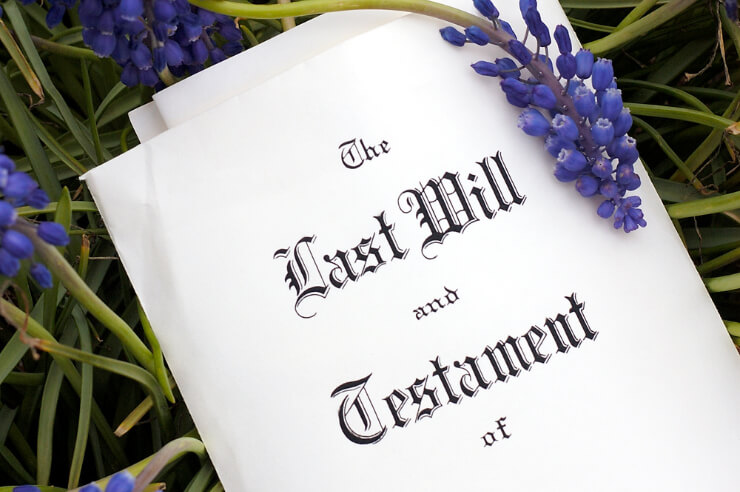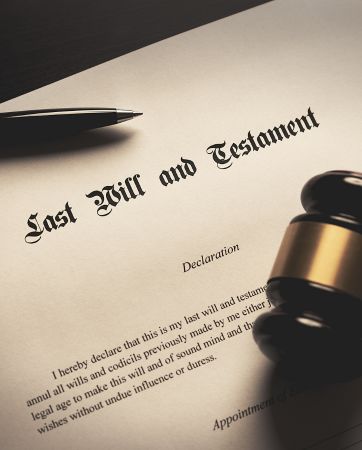A Guide to Writing a Meaningful Will in Ireland
Writing a will is something many people tend to put on the long finger, but it’s one of the most thoughtful and practical things you can do for the people you care about. It brings peace of mind, offers clarity during difficult times, and ensures that your wishes are honoured after you're gone.
Whether your estate is large or not, taking the time to put your affairs in order is a lasting act of kindness. If you live in Ireland and want to create a will that’s simple, effective, and legally sound, this guide will help you get started.
What is a will in Ireland and why do I need one?
A will is a legal document that outlines what should happen to your money, property, and belongings after your death. It also allows you to appoint someone — known as an executor — to make sure your wishes are carried out. If you die without a will, your estate will be divided according to Irish law, which may not reflect your personal wishes.
For a will to be legally valid in Ireland, a few key conditions must be met: you must be over 18 or married, of sound mind, and the will must be in writing. It must be signed at the end by you, in the presence of two witnesses who are also required to sign it. Importantly, these witnesses should not be people who stand to benefit from the will, as that could invalidate their inheritance.

Writing a will is something many people tend to put on the long finger, but it’s one of the most thoughtful and practical things you can do for the people you care about. It brings peace of mind, offers clarity during difficult times, and ensures that your wishes are honoured after you're gone.
Whether your estate is large or not, taking the time to put your affairs in order is a lasting act of kindness. If you live in Ireland and want to create a will that’s simple, effective, and legally sound, this guide will help you get started.
What is a will in Ireland and why do I need one?
A will is a legal document that outlines what should happen to your money, property, and belongings after your death. It also allows you to appoint someone — known as an executor — to make sure your wishes are carried out. If you die without a will, your estate will be divided according to Irish law, which may not reflect your personal wishes.
For a will to be legally valid in Ireland, a few key conditions must be met: you must be over 18 or married, of sound mind, and the will must be in writing. It must be signed at the end by you, in the presence of two witnesses who are also required to sign it. Importantly, these witnesses should not be people who stand to benefit from the will, as that could invalidate their inheritance.
What should be included?
Your will should clearly state your full name and address to identify you. It should also explicitly cancel out any previously written wills. You’ll need to name at least one executor — this is the person responsible for applying for probate, managing your estate, paying any debts or taxes, and distributing your belongings as instructed.
Choose someone you trust, who is capable and willing to take on this responsibility.
Next, outline the details of your estate such as property, savings, investments, personal belongings and specify who should receive what. These individuals are known as your beneficiaries.
If you have children under 18, you should name a guardian to look after them. You can also include your funeral wishes, although these aren’t legally binding, they can still provide helpful guidance for your loved ones.

Can you write your own will in Ireland?
While it’s legally acceptable to write your own will, it’s not generally advised. Even small errors can lead to confusion, disputes, or delays in carrying out your wishes. Many people choose to work with a solicitor, especially if their circumstances involve property abroad, business interests, or complicated family situations.
A solicitor can ensure your will is clear, legally valid, and aligned with current Irish laws.
Once your will is written, make sure to keep it safe — either at home in a fireproof box, with your solicitor, or in a bank or safe deposit box. Just as important, let your executor know where to find it. And don’t forget to review and update your will when major life changes occur, such as marriage, divorce, the birth of a child, or purchasing property. Your will should always reflect your most up-to-date wishes.

What to know about Irish inheritance tax?
It’s also wise to consider the potential tax implications for your beneficiaries. In Ireland, Capital Acquisitions Tax (CAT) may apply, depending on how much is inherited and the relationship between you and the beneficiary.
As of 2025, children can inherit up to around €335,000 tax-free, but other relatives like siblings, nieces, or nephews have significantly lower thresholds. If you're unsure about this, seeking tax advice is a good idea.

Ultimately, writing a will is not just about dividing up your assets — it’s about providing certainty, reducing stress for your loved ones, and making sure your voice is heard when it matters most. If you're ready to take this step, reach out to a solicitor. It’s one of the most valuable gifts you can leave behind. Remember, you can get even further peace of mind during your later years with Funeral Insurance from An Post Insurance.
An Post Insurance is a tied agent of New Ireland Assurance Company plc for life assurance business. Life assurance policies are underwritten and provided by New Ireland Assurance Company plc. A Government levy (currently 1%) applies to all premiums paid. The total premiums paid over the term of the policy may exceed the death benefit.
All the information on this blog is published in good faith and for general information purposes only. While An Post Insurance makes every effort to ensure that the information appearing on this blog is accurate and complete, it does not make any warranties about the completeness, reliability or accuracy of this information, whether express or implied, including but not limited to implied warranties of merchantability, fitness for a particular purpose or non-infringement. Any action you take upon the information you find on this blog is strictly at your own risk. An Post Insurance will not be liable for any direct, indirect or consequential losses and/or damages in connection with the use of, or action taken in reliance on information contained in our blog.
Through this website you are able to link to other websites which are not under the control of An Post Insurance. We have no control over the nature, content, and availability of those sites and if you click on links to these websites you will be subject to the terms and conditions of those sites. The inclusion of any links does not necessarily imply a recommendation or endorse the views expressed within them.



















